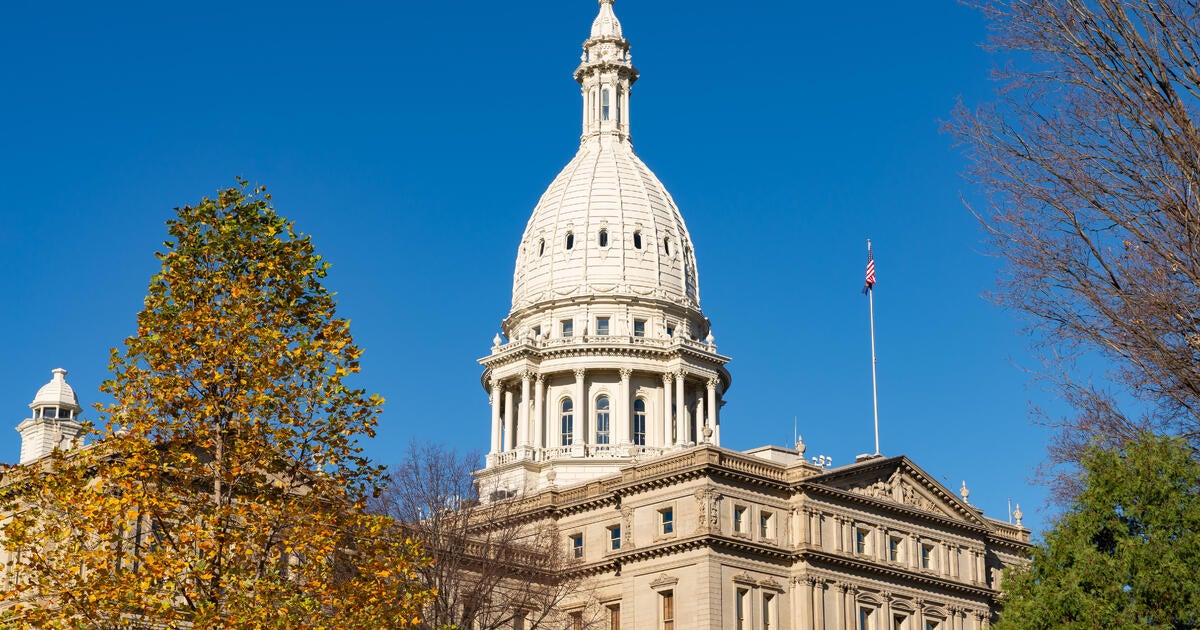Proposals to restrict voting gain traction in Republican states
After a record turnout election that delivered Democrats the presidency and the Senate, Republican lawmakers in Georgia introduced legislation this week that critics say threatens to diminish the number of voters participating in the state's next elections. If these provisions pass, Georgia would quickly go from being one of the easiest states in which to vote by mail to one of the more difficult ones.
A bill introduced in the state Senate on Tuesday would severely limit who would be able to vote by mail, requiring voters to provide an excuse in order to vote by mail, although Georgia has had no-excuse absentee voting since 2005, when it was passed by a Republican legislature. Mail-in voters would also need to submit identification information to request a ballot.
In 2020, Joe Biden became the first Democrat since Bill Clinton won Georgia in 1992 to win the state, and in January, Georgia's pair of runoff Senate elections handed control of the Senate to Democrats. A record 5 million Georgia voters voted in the presidential election, including 1.3 million by mail, according to the U.S. Elections Project. The January Senate runoffs also set records, with over 4.4 million voters, including more than 1 million by mail. Georgia had two recounts and a signature audit following the general election and found no evidence of widespread voter fraud.
Should Georgia's new voting bills become law, the voters most likely to be affected are the Black and minority voters who helped Democrats to victory.
A state House committee passed a measure Wednesday that would, among other things, limit early voting weekend hours. The bill initially barred Sunday voting, which would disproportionately affect Black voters, but was amended on Wednesday to potentially allow for it. It also requires a voter to include either a driver's license or state ID number on an absentee ballot application or to provide a photocopy of an approved ID. A similar ID bill passed in the state Senate on Tuesday.
Forty-three states, including Georgia, have together introduced over 250 bills to restrict voting access after the 2020 election as of Friday, according to the Brennan Center for Justice. The measures limit mail-in voting, impose stricter voter identification requirements, purge voter rolls, and make voter registration more difficult, according to the Center.
Republicans control all levers of government in Georgia. However, Governor Brian Kemp, who is up for re-election in 2022, has yet to weigh in on the package, and he doesn't believe eliminating mail-in voting is the best course of action.
Secretary of State Brad Raffensperger, who became an unlikely voting rights hero to advocates last year for defending the state's election results, supports the rollback of absentee voting, arguing that the current policy puts a heavy burden on election officials who must oversee both early in-person voting and Election Day balloting.
He tweeted on Wednesday that his team is "reviewing bills."
"Once we see something that prioritizes the security and accessibility of elections, we'll throw in support. At the end of the day, many of these bills are reactionary to a three-month disinformation campaign that could have been prevented," Raffesnperger added.
Georgia Republican Representative Barry Fleming, one of the sponsors of the state House bill that passed out of committee on Wednesday, said last week that the bill could help convince people to have "confidence overall in our election system."
Fair Fight Action, a voting rights group founded by former Georgia Democratic gubernatorial candidate Stacey Abrams, launched a multimillion dollar advertising campaign in a bid to stop many of the proposed voting changes from becoming law. "We can't allow this lie about voter fraud to impact millions of voters from the Democratic and Republican parties," said Hillary Holley, the group's organizing director.
Some Republicans harbor doubts about the voting measures. Lieutenant Governor Geoff Duncan, for instance, has voiced his opposition to some of the proposals. In an interview with CBS News, he called the curbs to mail-in voting "a bad idea for Georgia. No matter your party, I don't think it puts us in the best possible position to have an inviting environment for the voting process."
Duncan, who supported a more limited package that included a voter ID requirement for absentee ballots, is concerned Republicans are having a knee-jerk reaction to their losses. "This is a temporary mirage that some Republicans are looking at," he said. "And I think every day more and more Republicans are starting to wake up to reality, and the reality is we got beat."
But Republican state lawmakers are also trying to change election laws in states where they won the presidential race.
In Iowa, Republican state Senator Jim Carlin offered the opinion that "most of us in my caucus, in the Republican caucus, believe the election was stolen." Other Republicans said it was about increasing election security.
A bill is headed to Iowa Governor Kim Reynolds' desk that would shorten the early voting period, require mail-in ballots to be returned by Election Day and limit who can return an absentee ballot, a practice sometimes referred to as ballot harvesting, among other provisions.
Mr. Trump and his allies lost more than 60 court cases after the election, and his own attorney general said there was no evidence of fraud at a level that "could have effected a different outcome in the election."
On the national level, the Republican National Committee announced a new Committee on Election Integrity which is scheduled to hold its first meeting this week. Florida GOP Party Chairman Joe Gruters, one of the committee's chairs, said the group will be examining issues in the 2020 election and would target states to implement changes.
Gruters backs a push for photo ID laws and would also like to see states start processing absentee ballots earlier.
"You can't start counting votes on Election Day and expect to finish on time," Gruters said. "To me it just seems like it's common sense."
Leading up to the 2020 election, there were warnings about delays, especially in key battleground states where officials had limited or no ability to process ballots early. That led to late results that fueled unfounded conspiracy theories about the election. Republicans control the legislatures in Michigan, Pennsylvania and Wisconsin — three states that limited or prohibited early processing.
Florida allowed early processing and became one of the few battleground states that was able to report results on election night, emerging as a model of how to hold an election. The legislature would still like to give election officials more time to tabulate ballots and is working on a measure.
But even though Trump won the state by over 370,000 votes, Republican Governor Ron DeSantis is proposing changes to the state's election laws, including limiting the use of drop boxes; requiring voters to request an absentee ballot every cycle instead of every two cycles, which is the current law; prohibiting third-party ballot collection, and requiring precincts to report their voter turnout data in real time. DeSantis said that while "the state held the smoothest, most successful election of any state in the country...we should not rest on our laurels."
In 2020, roughly 4.7 million people voted by mail in Florida. Absentee voting has long been popular in the state, particularly among senior voters, and Republicans have typically held an advantage. But President Trump's rhetoric against the process flipped the script, and Democrats outnumbered Republicans in returned mail ballots.
Taken together, the myriad bills across the country designed to change voting laws signal a core part of the GOP's messaging heading into the next election cycle. At this weekend's annual CPAC gathering of conservative lawmakers and activists, the first day of programming features two panels dedicated to "protecting elections" including one on "why judges and media refused to look at the evidence."
Samantha Chaney contributed to this report.



